How a potential Disney lawsuit changed Marvel's Howard the Duck forever
Disney "threatened to sue" Marvel over Howard the Duck's likeness to Donald Duck, according to late creator Steve Gerber
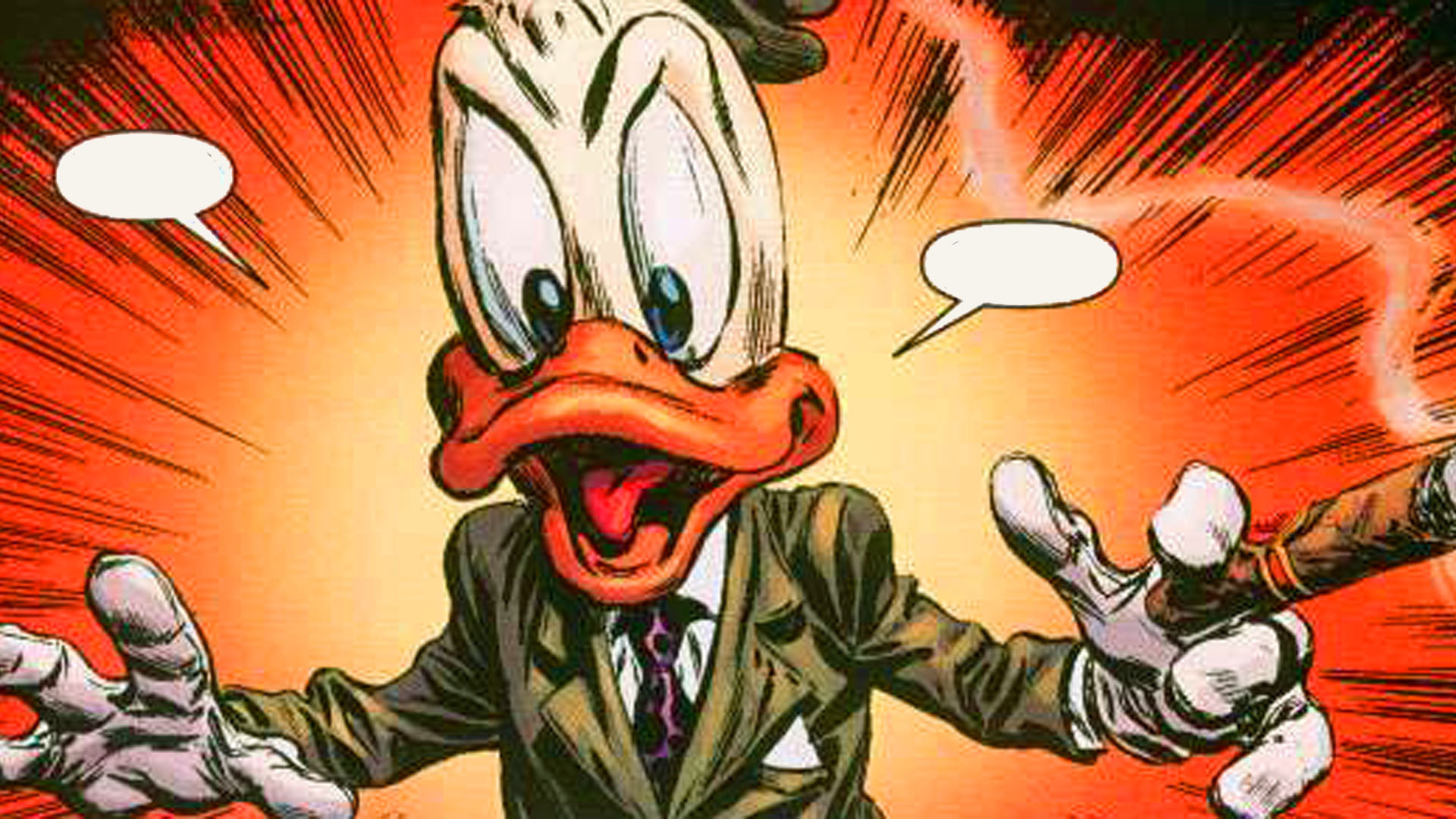
Howard the Duck is arguably Marvel's most unique character, compared to the thousands of superheroes of that make up the company's massive character library. But despite standing out from the Marvel crowd, for lawyers of another giant media corporation, he was too similar to one of their characters - Disney's Donald Duck.
Three decades before the Walt Disney Company bought Marvel Entertainment (and made Howard the Duck part of the Disney family), the House of Mouse threatened a trademark lawsuit against Marvel due to the similarities between Donald Duck and Howard the Duck.
That's right - Disney threatened to sue Marvel in the '70s.
This was a few years after Disney sued (and won!) a lawsuit against the creators of a parody of some of its characters in the magazine Air Pirate Funnies.
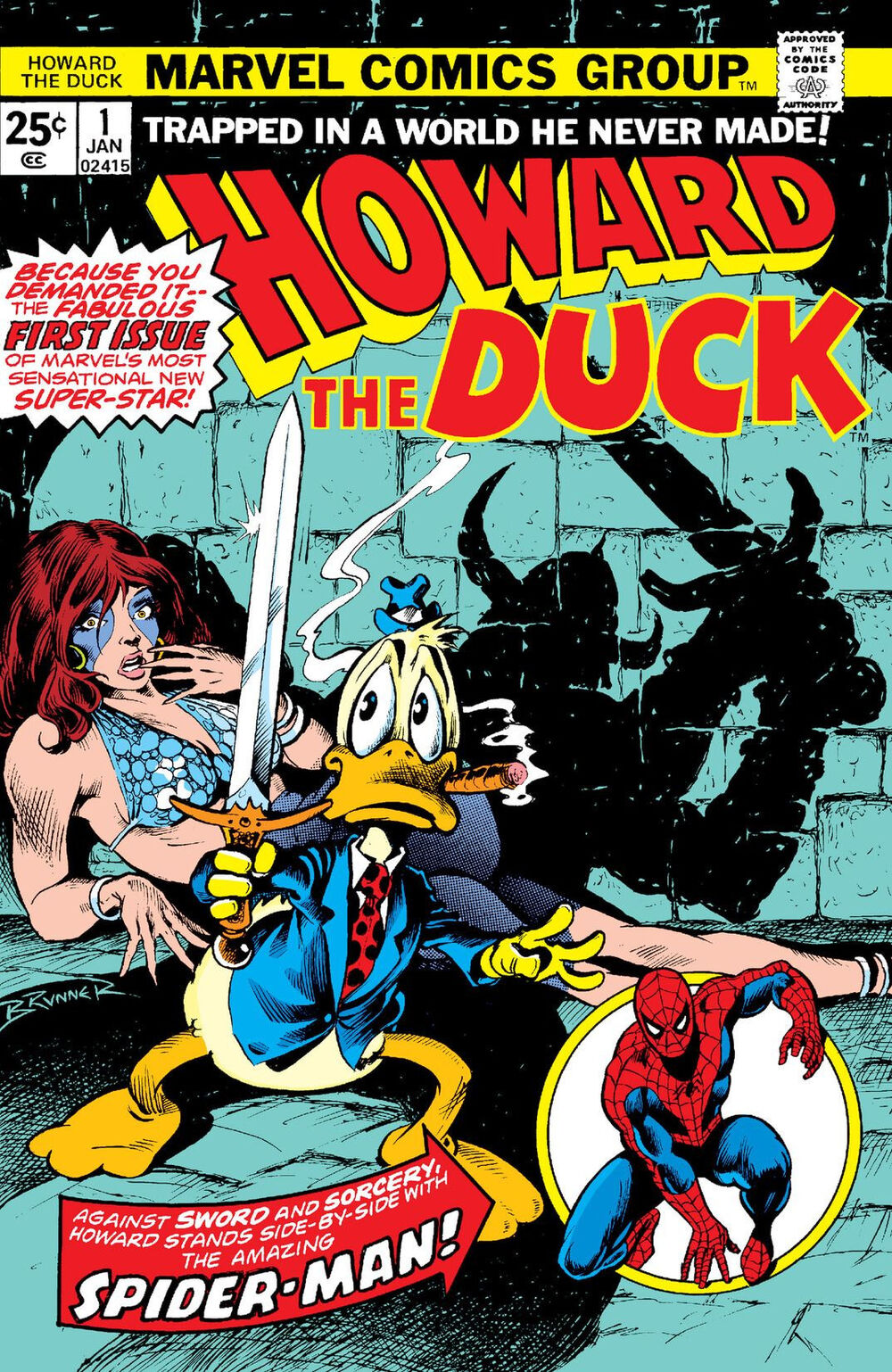
Howard the Duck was created back in 1973 by writer Steve Gerber and penciler Val Mayerik as a one-off character in the anthology series Adventures into Fear. The irreverent Howard quickly became a cult-hit with Gerber at the helm, graduating to his own ongoing series in 1976 - and even a spin-off newspaper strip in 1977. Eventually, Howard came to the attention of Disney.
"Back in 1979 or so - I don't have the exact date handy - the Walt Disney Company threatened to sue Marvel Comics, claiming that Howard the Duck infringed on their Donald Duck trademark," Steve Gerber told Newsarama in 2001. "To avoid a legal battle, Marvel's old management signed an unbelievably stupid agreement with Disney regarding the design of Howard the Duck."
According to Gerber, Marvel agreed to a "set of designs" Disney had mapped out for the Howard the Duck character that, if followed, they would refrain from a lawsuit.
Weekly digests, tales from the communities you love, and more
"It's the version with the beady eyes, the hideous swollen beak, and the baggy trousers, the one that appeared in the black-and-white Howard magazine and in the movie," Gerber continued. "The way the agreement is worded, Marvel isn't even allowed to come up with an entirely different design, even if that design bore no resemblance to Donald."
The Disney/Marvel agreement, in Marvel's own words
Newsarama has uncovered portions of the agreement that Marvel signed, published soon after the legal issue was settled by Disney.
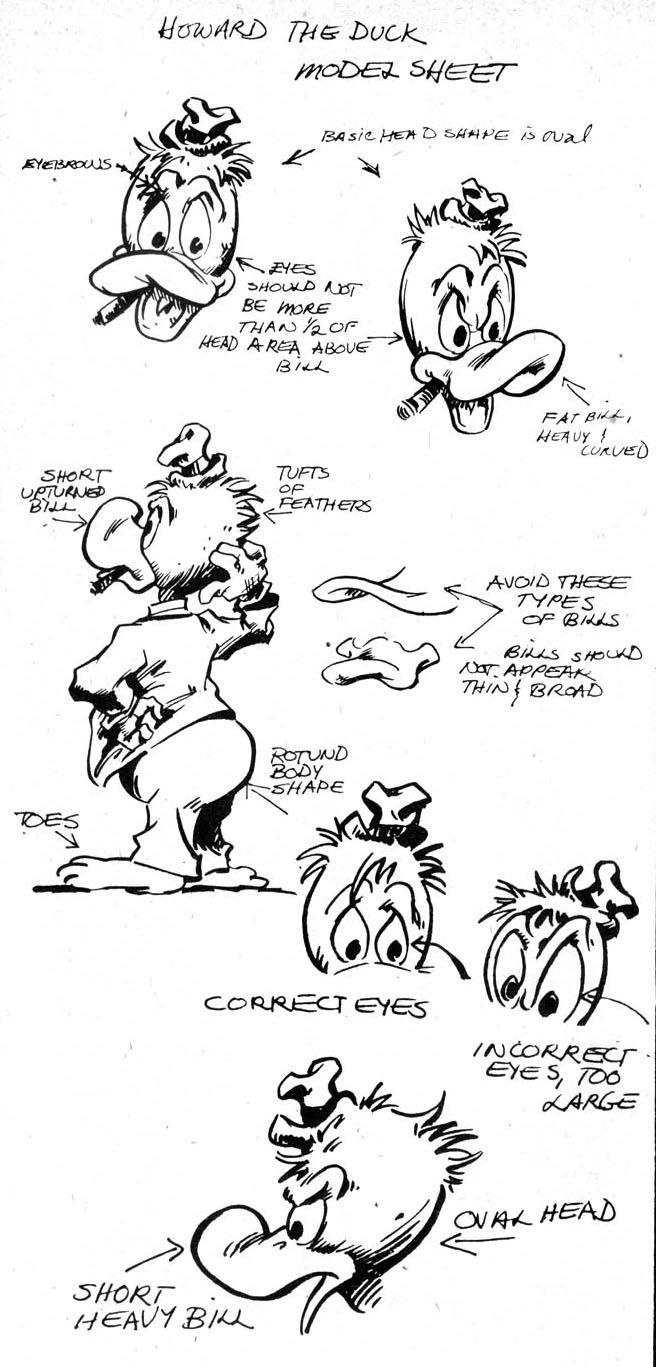
In a seemingly forgotten article in 1980's Howard the Duck Magazine #8 titled 'How the Duck Got His Pants' by Steven Grant, apparent excerpts of the legal letter were reprinted, along with a rundown of what happened, from Marvel's perspective.
"Negotiations between the two companies began in mid-1977, with a proposed agreement that covered a mere four pages. By the time the media magnates came to a final consensus, it was 1980, and the agreement had doubled in length."
According to this Marvel article, the original Howard the Duck – termed "the 'old' Howard the Duck" would never be used again, except in reprints, in favor of a 'new' Howard the Duck.
Specifics included the shape and color of Howard's head, bill, feet, eyes, toes, feathers... and one more thing.
"Howard would almost always wear pants," reads the Marvel article. "So say hello to the New Howard, and rest easy, America. Once more, men have worked out their differences with communication instead of battle. Once more, the world has been made safe for ducks."
Gerber's response? Duck off, Disney!
In 2000, Gerber was lured back to Marvel to write a new Howard the Duck series - under the auspices of a new adult-only label titled Marvel MAX. Working with then-Marvel editor Stuart Moore and artist Glenn Fabry, Gerber began work on the project, thinking the decades-old agreement was forgotten (or at least, bent) as Gerber (and presumably the others) thought it was merely a verbal 'handshake' between the two companies.
As we discovered (and they did as well), they were wrong.
"We were in the process of redesigning Howard - Glenn Fabry had done some terrific sketches - when Stuart Moore checked with Marvel's legal department and turned up the written agreement," Gerber told Newsarama in 2001. "Needless to say, everyone concerned was horrified. None of us, least of all myself, wanted to do a character that had to look like that appalling Disney design."
The writer told Newsarama that they were considering "junking the project altogether" when he came up with a possible workaround.
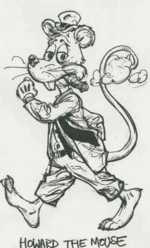
"... I asked a question: 'Would Howard in the guise of any other species still be Howard?'," Gerber revealed. "In other words, was the character's personality ultimately more important than its feathers and beak? Could we turn Howard into, say, a mouse, and still preserve everything about him that made him Howard?"
To help make the case, Fabry drew a mouse version of Howard the Duck - Howard the Mouse, we'll call him - that Gerber said was "unmistakably Howard."
"Stuart showed the sketches to Bill Jemas [Marvel's then-publisher] and Joe Quesada [Marvel's then-editor-in-chief], and not only did they like the idea, Bill actually upped the ante a couple of notches by suggesting that we try Howard as several different animals over the course of the six-issue series," Gerber continued.
The eventual series Howard the Duck MAX did incorporate that idea in what Gerber referred to as a 'Howard the Zoo' concept, but it didn't end there. Howard the Duck MAX grew to be a broader parody that included jabs at Witchblade, Sandman, Oprah Winfrey, God, and yes, Disney again.
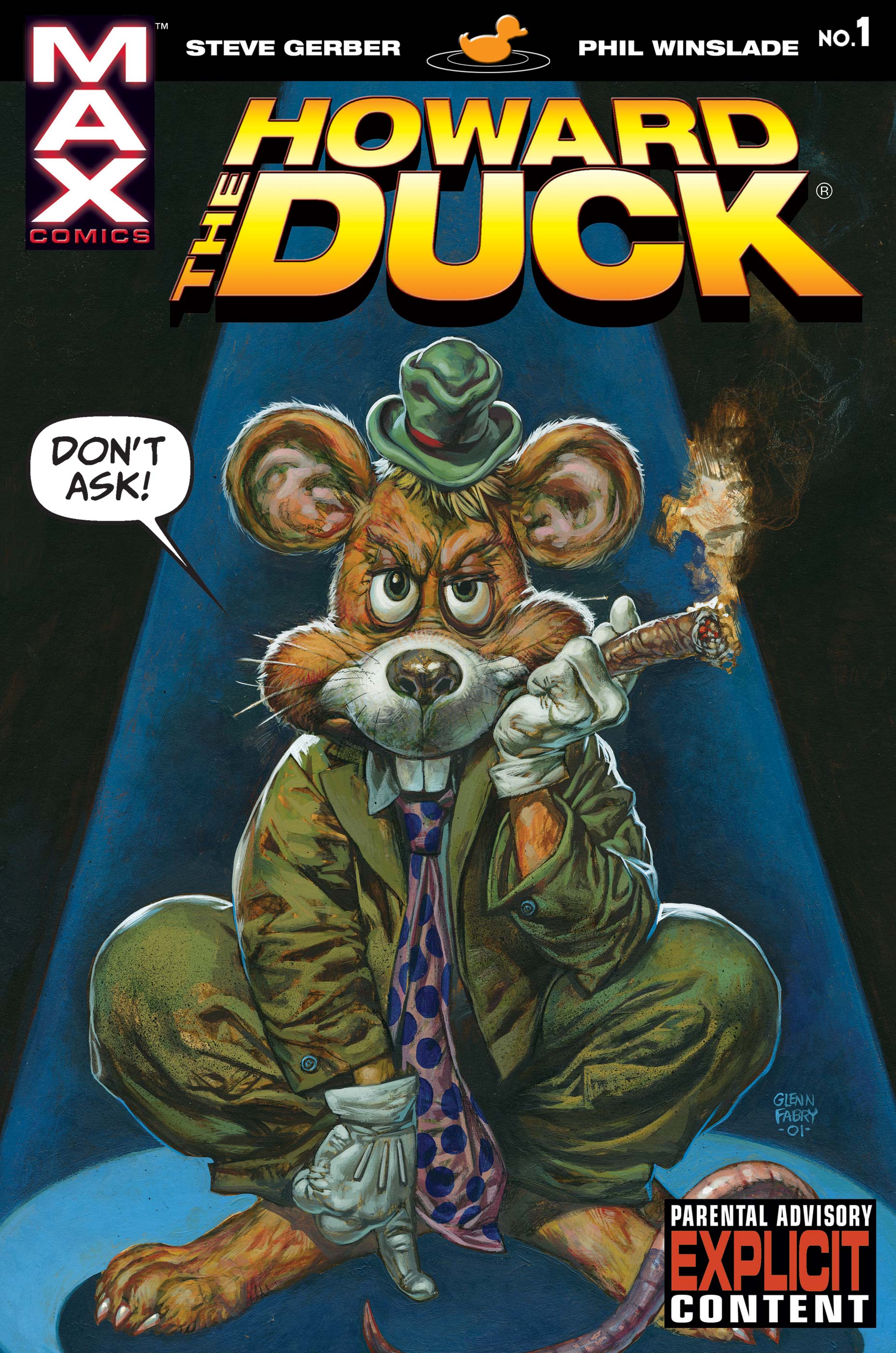
At the time, Gerber hoped the series would prompt a discussion to change Howard the Duck permanently and get out from under the Disney deal. As he told Newsarama, he wished a reader poll would be created where fans could vote on which animal Howard should become if not 'the Duck.'
"If readers insist on Howard as a duck, there's nothing Marvel can do, except conform to the Disney design," Gerber said. "The only alternative I can envision would be a massive phone, fax, and letter-writing campaign aimed at Disney, on the off-chance that fans could persuade them to accept a broader interpretation of the agreement they signed with Marvel, one that would allow Marvel to redesign Howard as a duck that looks nothing like Donald."
Ultimately that never came to pass. Gerber's Howard the Duck MAX (with artist Phil Winslade) was published in 2002, but has been out-of-print for almost two decades - and has not been made available digitally.
The character Howard the Duck continues to appear intermittently in Marvel Comics (in his standard duck form), and since Disney's acquisition of Marvel in 2009, Howard has had a few Easter egg cameos in the Guardians of the Galaxy films and the animated What If...? Disney Plus series (though there's no word yet on whether Disney has let Marvel off the hook for making design changes now that they'd be suing themselves).
Perhaps the oddest thing of it all is, Marvel did eventually publish a series with Howard not as a duck: in 2015, Howard the Human by Skottie Young and Jim Mahfood reimagined the mallard as a man.
GamesRadar has revisited the cult film Howard the Duck with modern-day eyes.
Chris Arrant covered comic book news for Newsarama from 2003 to 2022 (and as editor/senior editor from 2015 to 2022) and has also written for USA Today, Life, Entertainment Weekly, Publisher's Weekly, Marvel Entertainment, TOKYOPOP, AdHouse Books, Cartoon Brew, Bleeding Cool, Comic Shop News, and CBR. He is the author of the book Modern: Masters Cliff Chiang, co-authored Art of Spider-Man Classic, and contributed to Dark Horse/Bedside Press' anthology Pros and (Comic) Cons. He has acted as a judge for the Will Eisner Comic Industry Awards, the Harvey Awards, and the Stan Lee Awards. Chris is a member of the American Library Association's Graphic Novel & Comics Round Table. (He/him)



